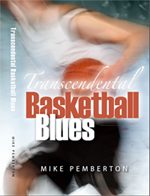Looking for a Low-Stress Career? Be a Punter
2/3/2019
Published in News-Gazette
Stanley Bing’s Executricks: Or How to Retire While Still Working is a tongue-in-cheek guide to maximizing enjoyment while minimizing work for people navigating their way through corporate America. The gist is to enjoy the ride for as long as we can before the company lays us off or we retire.
Striking a work/life balance is not the same as being a slacker. I’m all for an honest day’s work for an honest day’s pay. But the notion of an employer’s loyalty to its employees as if they were family was disabused long ago. Businesses exist to make a profit. If they’re not then they let employees go. Our families, mostly, don’t let us go.
The fact is, work-wise, we are all expendable. As Charles de Gaulle said: “The graveyards are full of indispensable men.”
Still, we do owe employers our best effort. But how to walk the line between a slacking employee and an exploited one?
A few folks, driven by ambition and the almighty dollar, will growl, dismiss such talk as wimpy worrying, and sail forth, some achieving great wealth, some crashing and burning.
Other people find their true calling. Whether they make much money, work long hours, receive acclaim – or do not – they are content.
Some toss in the towel and do their best to minimize employment, working here and there as necessary. Theirs is a hazardous existence which may find them on the street if they’re not careful. They are the most expendable of all.
The rest search for that work/life balance, neither loving nor hating their job, but needing it and understanding it’s not guaranteed.
It’s those folks who might benefit most from an attitude of retire-while-you’re-working and finding a position that maximizes earnings and longevity while minimizing stress.
Let’s use the National Football League, a prototypical American corporation, as an example of how to find the right position.
NFL players’ employment is fraught with risk and reward. The endgame is indisputable. They will be cut or retire. Just a matter of when.
In addition, players get hurt. The question is how often, how badly, and will it be permanent. Chronic traumatic encephalopathy (CTE) is the poster child for not playing football, but players suffer other ailments as well.
Knowing all this, however, athletes join the NFL and play football. Like the rest of us, they need a job.
As noted above, some players, like spittle-foaming linebackers, will go whole-hog. Hypercompetitive quarterbacks will take hit after hit to win. Those few who succeed will be magnificently rewarded. Trips to Disney World, endorsements, and public adulation. See Khalil Mack and Tom Brady.
Others, like an offensive lineman, find their true calling. They are not paid like Brady or Mack, but they do well. They do not yearn for attention and take satisfaction in supporting the offensive stars and steamrolling lunatic linebackers.
Flankers, fast guys not built for football, minimize their involvement, living for a sliver of daylight and a smartly thrown ball to carry like a loaf of bread to the end zone. Otherwise, they avoid the havoc surrounding them. They make good money while healthy, but forced into the fray in order to catch passes, the flankers’ careers are fragile.
Kickers, of course, avoid most of the mayhem, but they have the stress of making the game-winning field goal or facing death threats. Exhibit A, the Chicago Bears Cody Parkey.
Which brings us to the punter. I think the punter is an example of how best to survive and thrive in cut-throat corporate America.
Expectations and pressure on the punter are low. Yes, from time-to-time they may throw a pass on a fake, but mostly they punt. And they are protected by the rules against any contact while they do so. After the punt, they hang back as the last defender.
Fair catch? They trot to the bench.
Punt out of bounds? Trot to the bench.
Into the end zone? You get the drill.
Occasionally, they’ll be a return, but this is no big deal either for the punter. None of the players, the 100,000 people in the stadium or the millions watching on TV expect him to tackle the runner. If he does, the punter is a hero for doing something that every other player, except the kicker, is expected to do.
Heck, a punter on a good offensive team may only go on the field a couple times a game. The rest of the time they stretch, ride the stationary bike, or chart plays.
Talk about maximizing earnings with low stress. Ray Guy punted for the Oakland Raiders for 13 years. That’s impressive considering the average NFL player’s career lasts just over three. The average punter hangs around for five.
None of this is to say punters don’t work at their craft or have an impact on the game. A good punter is crucial to controlling field position giving their offense and defense an advantage.
So if you’re one of the millions enmeshed in corporate America struggling with work/life balance, who is neither a high flyer nor a slacker, but needs a job and wants to help the team – at, shall we say, a safe distance – look for the sweet spot in your field.
Be a punter.


